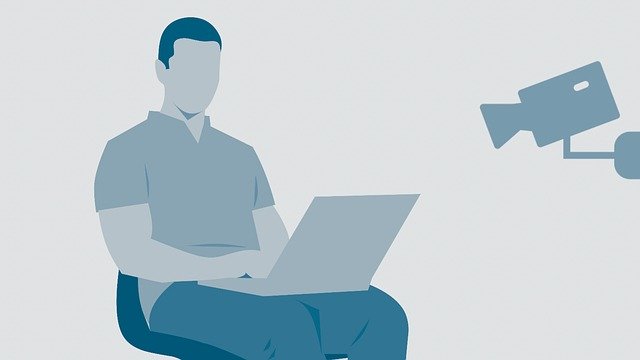PwC's Facial Recognition Tools To Monitor Home Workers
PwC faces criticism after developing facial recognition tools to track employees, but they say that the tech has been developed to support an existing...
Read Full Article
Employers’ use of surveillance software, known as bossware, appears to be on the up, with off-the-shelf products able to track keystrokes, mouse movements and even take random screenshots throughout the day.
Online business owner Shibu Philip told the BBC that he uses such software to track seven remote workers based in India:
"By looking at screenshots and how much time everyone is taking on certain tasks, I know if they're following procedures.”
“We should both celebrate and be cautious of technology for its ability to support people and business through this crisis.”
–Ed Houghton
Head of Research and Thought Leadership, CIPD
Hubstaff, Philip’s software solution of choice and one of many on the market, is a productivity tracking programme that has optional screenshotting as one of its features.
Random screen capture can be customised by employers, and set to once, twice, or three times per ten minutes. Hubstaff’s website states that around two-thirds of businesses monitor their employees’ internet use.
Such monitoring is commonplace in compliance-heavy environments such as financial institutions and trading floors, but with working from home set to be the norm for the foreseeable few months, workplace monitoring of this type may gain momentum in other sectors.
Ed Houghton, the Chartered Institute of Personnel and Development (CIPD)'s Head of Research and Thought Leadership, wrote back in May that organisations must exercise caution when installing such software:
“While technology may present the opportunity for monitoring and surveillance, it’s clear that the benefits must be weighed up against the drawbacks. Clearly technology is currently connecting workers and enabling work for many in a way that even a decade ago was not possible.
“Organisations that would have stopped operations are today keeping their lights on, even if those lights are in the homes of workers and not the office.
“We should both celebrate and be cautious of technology for its ability to support people and business through this crisis.”
Picture: a graphic showing a person working on a laptop, with a security camera facing them
Article written by Ella Tansley | Published 29 September 2020
PwC faces criticism after developing facial recognition tools to track employees, but they say that the tech has been developed to support an existing...
Read Full ArticleIn what's becoming known as a "pingdemic", organisations are facing mass staff shortages because employees have been advised to self-isolate through...
Read Full ArticleA smart-monitoring technology company has launched a wearable smart tag designed to make social distancing easier. The body-worn Orbi-Trace smart tag gives the...
Read Full ArticleCoronavirus is accelerating the demand for CCTV systems being used to remotely monitor people and operations in the workplace, according to a new...
Read Full ArticleAfter the CEO of Barclays said the firm would look at a more “de-centralised approach to staff working”, the finance sector and beyond looks likely to...
Read Full ArticleWith mask-wearing becoming mandatory in certain public buildings in England, FM security teams may have to take additional precautions to face this challenge. Shops...
Read Full ArticleColliers’ latest Occupier Cost Index shows costs remain out of step with occupancy, with soft services increasing by 8 per cent in 2024. The Occupier Cost Index...
Read Full ArticleInsights from a global survey of nearly 11,000 office workers reveal the importance of engaging office environments & “purpose-driven”...
Read Full ArticleNew research from Colliers Workplace Advisory uses occupancy analytics to determine what influences office attendance. Watch the...
Read Full ArticleA survey of 2,000 UK employers shows that just one in four employers recruiting young people think they are well-prepared for the world of work. 52 per cent...
Read Full Article